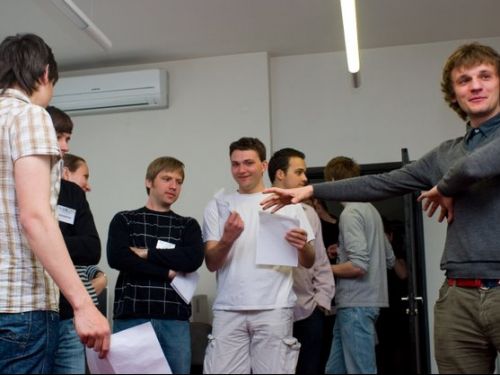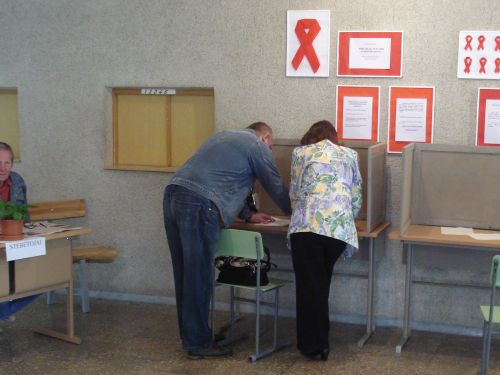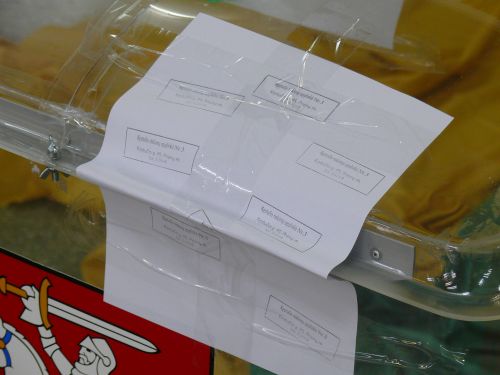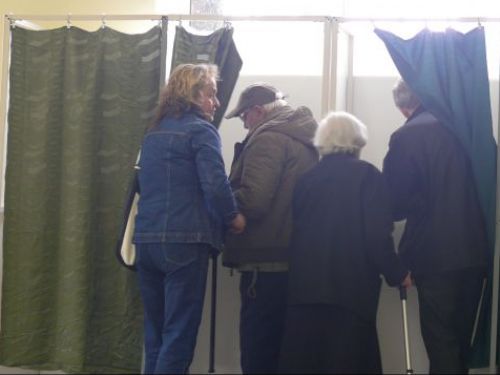The participation of Belarusians in the international observation mission was made possible through the project “Election Observation: Theory and Practice.” This project is jointly implemented by United Centre of Initiatives for Belarus (JuBIC), Swedish International Liberal Centre (SILC), European Humanities University (EHU) and Belarusian Human Rights House in Vilnius (HRH).
The project included a week-long intensive training course in Vilnius on 11-16 May, which was devised by prominent Norwegian political scientists led by Professor Frank Aarebrot of Bergen University. Theoretical knowledge received during lectures was reinforced in practice during the Presidential Election in Lithuania on 17 May. Lithuanian students from ISM University of Management and Economics as well as Swedish civil society activists took part in the project alongside Belarusians.

The project coordinator and an EHU student Anastasiya Matchenko explained uniqueness of this project:
–The project is composed of two parts, theoretical and practical. First, participants listen to a series of lectures read by Norwegian and Belarusian political scientists, lawyers and human rights defenders. The knowledge received is strengthened in practice during the actual election observation. Simultaneously, the participants are enrolled in an EHU academic course, after successful completion of which they receive credits and special certificates.
Incidentally, this is not our first election. Since 2007, when the project only began, we have participated in international observation missions in Norway, Georgia, and Lithuania, from municipal to parliamentary and presidential elections. And every young woman and man, who is interested in the world democracy, can certainly join us.

A JuBIC member Yauheni Hladki shares his impressions of the course and election observation:
–Certainly, there were some rather peculiar situations. For instance, we observed how the acting Lithuanian president Valdas Adamkus voted without presenting his ID, moreover, he did it openly. However, the main election deviations had a more technical character and they were provoked by differences in the local interpretation and practical realisation of accepted international standards. For example, the Lithuanian election law does not specifically say what steps should be taken to ensure the secrecy of vote: “Nobody has to know how a person votes.” And according to international standards even the absence of curtains on a polling booth is already an obvious deviation.
Each of our observation groups had Belarusian and Lithuanian participants, and some of them additionally had Swedes. However, I can’t recall a single instance when we had any misunderstandings between ourselves. There was simply no room for any misunderstandings – we received the same knowledge and training, and we are Europeans, after all! On the opposite, having an international team even helped us! For instance, it would be rather difficult to adequately understand all intricacies and undertones of Lithuanian mentality, especially when one does not live here permanently. And here the help of our Lithuanian observers was priceless!
However, during the last observation Belarusian specifics led to some interesting conclusions. When our observers in general stress the importance of democratic procedures, observers from Belarus tended to concentrate more on transparency of the vote count; even though it is one of many components of election process.
Anyhow, the most important feature was our mutual comprehension that there is the law and it has to be followed. This awareness united all of us.


Documents:


